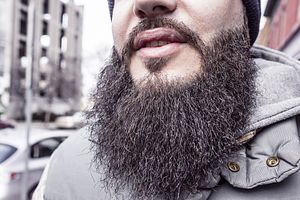Religious matters are a contentious issue not only in Uzbekistan, but in all of Central Asia. Attempts by the Uzbek authorities to maintain a secular government but also control the spread of some Islamic practices — seen by some as non-traditional for the region — have resulted in embarrassingly odd situations.
The latest such event took place on August 23 when police in Tashkent rounded up about a hundred men and shaved their beards. Law enforcement associates beards with following a strict Wahhabi version of Islam. After the incident and ensuing outcry, the leadership of the state Committee on Religious Affairs, Uzbekistan’s top religion policymaking body, was removed. Although not officially linked to the beard-shaving backlash, the move indicated an unfavorable reaction to the events by the country’s top leader.
First to report about the beard-shaving campaign was Jamoliddin Muhammadjon, a blogger and owner of a religious book store. He detailed his experience and received national attention. He described being one of a hundred to be detained, his facial hair removed, interrogated, and photographed before being released. When Muhammadjon asked his interrogator for the reason and purpose of his detention, the official alluded to “orders from above.”
The Committee on Religious Affairs is a body of 58 people under the Cabinet of Ministers. The committee’s main function is to ensure freedom of conscience and freedom of religion. The committee issues permits to religious organizations that allow them to operate in Uzbekistan. The committee’s then-head Jasur Akromov and his deputy, Nuriymon Abdulhasan, left their jobs on August 31. Both had served on the committee since April 2018. Abdulhasan’s new post is already known – he is the new head of the Department of Counterterrorism at the Ministry of Interior Affairs, the very body that conducted the beard-shaving raids.
Perhaps perturbed by the police activities on August 23, Uzbek President Shavkat Mirziyoyev issued an order requesting the Committee on Religious Affairs develop a set of new policies on September 6. The committee was instructed to develop a new policy to ensure freedom of conscience (note the absence of a reference to religion) and establish religious and spiritual balance in cooperation with other governmental and non-governmental organizations. The committee was also tasked to develop a state policy on religious matters based on existing regulations on freedom of conscience and religious organizations.
Men’s facial hair is a recurring point of contention in Central Asia. About a year ago, Uzbek Minister of Justice Ruslanbek Davletov said that wearing facial hair is an individual’s personal decision and can only be restricted in certain cases by a labor agreement. The head of the Tashkent branch of the Ministry of Interior, on the other hand, around the same time spoke of the need to discourage young men from growing beards to prevent facial hair to turn into an uncontrollable phenomenon.
These opposing views indicate a split within the government. The Interior Ministry, which serves a law enforcement function, clearly prefers to control facial hair and is willing to go as far as forcefully shaving beards. Then there are proponents of leaving personal grooming choices up to individuals, like the Justice Minister. The appointment of Abdulhasan, who has an academic background in Islamic studies both inside and outside Uzbekistan, to the Ministry of Interior could be an attempt to soften the police stance, while the new presidential order could be an attempt to strike a balance between ensuring freedom of conscience and controlling the proliferation of Wahhabi religious thinking.
The forced beard shaving episode is an embarrassing story for the current Uzbek government amid its reform push. Religious freedom and freedom of conscience is one topic that Uzbek officials are often asked about when travelling to the United States or Europe. The government of Uzbekistan wants to maintain secularism while containing the growth of conservative religious views in society. Nevertheless, employing forced methods and threats are not the way to achieve this goal.

































